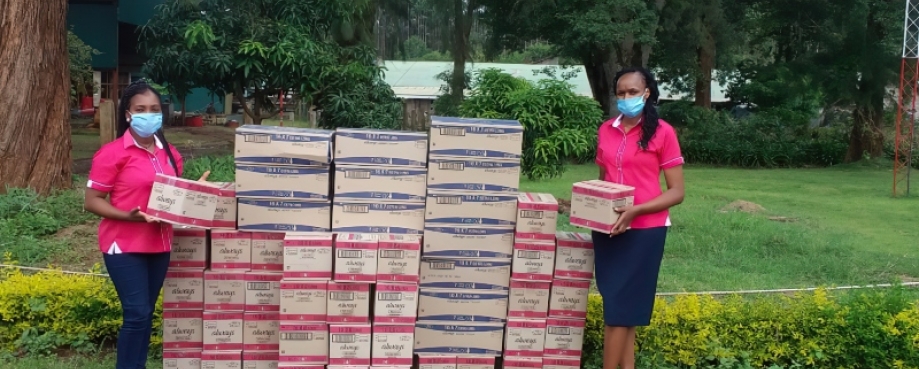
Kakuzi PLC is a Kenyan agricultural company which sells avocados to a number of UK supermarkets, as well as producing macadamia and blue berries for Asia and the US.
How Covid-19 has affected business
Avocado markets were initially negatively impacted as a result of the closure of European restaurants and wholesale markets. There were also logistical concerns leading to a level of uncertainty over exports of perishable products. However, this is a fast-changing picture as Europe reopens.
How Covid-19 has affected employees
The Kenyan Government issued advice that employers and unions should try to cushion negative impacts on jobs and employment conditions, including a freeze on wages if required.
But Kakuzi PLC made the decision to implement a 10% pay rise for its unionised workers, despite uncertain market conditions. Many were grappling with loss of income and concerns over food shortages and price spikes. Fear of infection and associated stigma, and the effects of isolation and quarantine have also taken a heavy psychological toll on workers.
Protecting workers
The company has installed infrared thermometers at every entry point to screen employees and visitors for symptoms, while all workplaces and employee residential areas have handwashing and sanitizing facilities, in line with Kenya Ministry of Health and World Health Organization guidelines. Face masks have been issued to all employees for use both at work and in public places.
Kakuzi has stopped or postponed operations requiring external service providers which, coupled with an advisory on travel restriction in and out of Kakuzi, will help reduce the risk of infection.
Building capacity
Kakuzi has employed extra nurses, public health officers and community health workers to deliver health education, and public health inspections of workplaces and residential premises to ensure hygiene standards are maintained.
To enhance social distancing, the company has allowed some non-operational staff to work from home, employed more workers and introduced additional shifts in factories and packhouse to reduce the number of people in work at any given time.
Supporting women workers
Through its Tabasamu menstrual hygiene programme, Kakuzi has purchased enough sanitary pads for all female employees (more than 800) and extended the programme to teenage girls living in the wider community.
Lockdown has led to an increased risk of gender-based violence in the home and sexual harassment in the villages. Kakuzi has re-run our existing programmes against gender-based violence and sexual harassment, with an emphasis on awareness, prevention and reporting.
Protecting children
The closure of schools has also led an increased risk of child abuse, child labour, teenage pregnancy, children’s involvement in crime and drug abuse, and a rise in loitering - all of which place children at risk of infection with Covid-19.
Kakuzi has distributed radios to all employee residential areas to ensure the children can access continuous education through school radio programmes broadcast by The Kenya Institute of Curriculum Development.
Supporting the community
To cushion workers against food shortages and price rises, the company purchased 300 tons of staple dry food items. This supports an existing kitchen garden initiative which ensures employees and their families can access basic fresh vegetables and fruits.
In addition, the company has installed hand wash tanks in neighbouring towns and market centres, with water and soap replenished on a daily basis, and issued face masks to the surrounding community. It has provided tractors, spray units and mist blowers to Muranga County Government to support the fumigation and disinfecting of market centres, and donated medical equipment and PPE to the county hospital.
Listening to workers
The union shop stewards are in constant communication with management regarding any areas of concern, and employees play an active role in putting together and disseminating policies. Confidential hotlines, suggestion boxes, emails and employee representatives ensure employees are heard and actions taken on any issues raised.
Village environmental committees disseminate information, health and safety committees, made up of employees and managers, continue to inspect workplaces, and food safety committees monitor and verify control measures to ensure safety of the food products from Kakuzi.
